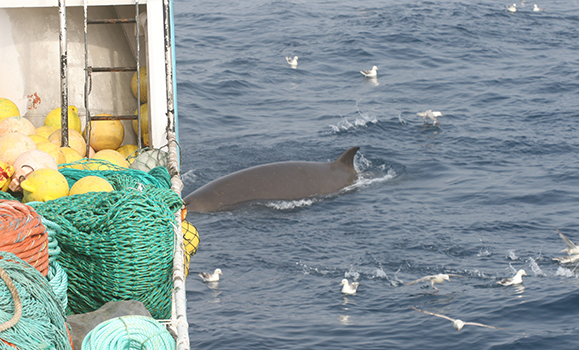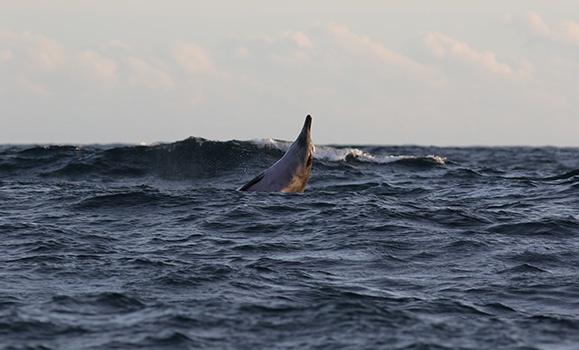Even in the deepest and most remote parts of the ocean, beaked whales cannot escape the harmful effects of human activity.
From military sonar, targeted hunting and ship strikes to climate change, plastic pollution and oil spills, researchers have found that the reclusive, deep-sea dwelling species is exposed to 14 human-made threats despite being found in habitats far from cities, ports and other populous areas.
Dr. Laura Feyrer, a marine biologist and adjunct faculty member at Dalhousie, reviewed existing literature on the human threats to beaked whales — a group that includes northern bottlenose, Cuvier's, Sowerby's and True's whales in Canadian waters and is characterized by deep dives, remote habitats and cryptic biology.
Her findings, published recently in Royal Society Open Science, illustrate how one of the least encountered mammals on the planet cannot avoid human pressures.
"This pervasive reach of human influence, particularly plastics across a wildly large number of species, suggests that virtually no area of the world's oceans is untouched by human activity," she says.
"The situation with beaked whales can serve as a cautionary tale as it suggests that no species is immune to anthropogenic impacts, irrespective of their remoteness or rarity."
Altered habitats
Of the threats they examined, climate change, entanglement and plastic pollution were the most common documented risks faced by beaked whale species. Climate change, for example,
is drastically altering marine ecosystems, with rising sea levels, increased ocean acidification, more intense marine heat waves and decreased sea ice.
"These alterations have significant implications for the migration, growth, reproduction and survival of marine organisms, including cetaceans," the paper states.

A northern bottlenose whale feeds off the undersized fish escaping from a trawler off Newfoundland. (Usua Oyarbide photo)
The researchers defined the level of impact for each threat as either serious, intermediate, moderate or unknown in cases where the level of severity for beaked whales is not yet known. However, the research emphasizes that all threats considered likely have some level of impact.
Military sonar was deemed a serious threat since it has been linked to fatal mass strandings of at least eight beaked whale species globally. Stranded animals showed symptoms similar to decompression sickness, probably due to altered diving behaviour and a ‘fight or flight’ response to sonar exposure, the paper reads.
Mysterious species
Dr. Feyrer says the review demonstrates the need for targeted, region-specific research to address uncertainties around the various impacts on beaked whales, which remain one of the most mysterious cetaceans because of their distant habitats. There are at least 24 different species with eight assessed as 'data deficient' by the International Union for the Conservation of Nature.
In Canada, beaked whales are also susceptible to military sonar during naval exercises, fishing gear entanglements, ship strikes and noise pollution from oil and gas exploration.
"Understanding the population sizes, health, and behavior of beaked whales is crucial for developing effective conservation strategies," says Dr. Feyrer. "This study underscores the importance of monitoring and regulating human activities that affect beaked whales in Canadian waters and globally."

